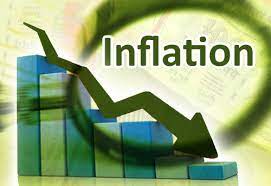Nigeria’s Consumer Price Index (CPI), which measures the general price level in the economy rose to 15.40 percent year-on-year (Y-o-Y) in November, representing 0.59 percent points lower than the 15.99 percent rate recorded in the preceding month.
The Statistician General of the Federation and Chief Executive Officer of the National Bureau of Statistics (NBS), Dr. Simon Harry, who gave the figures during a media briefing on Wednesday maintained that the November rate reflected that the nation’s inflation has continued to maintain consecutive decline year-on-year for eight months.
Noting that the November inflation portends a positive signal, Harry projected that given the favourable economic conditions, the nation’s inflation would come down to a bearable level in the months ahead.
Giving a further analysis of the inflation during the month in review, he explained that on a month-on-month basis, the Headline index increased by 1.08 percent, indicating 0.10 percent points higher than the 0.9 percent points recorded in October.
This is even as he disclosed that the Composite Food Index rose by 17.21 percent in November compared to 18.30 percent in the corresponding month of year 2020.
The Statistician General attributed the rise in the food index largely to increases in prices of Bread and Cereals, Fish, Food products such as Potatoes, Yam and other tubers, Oil and fats, Milk, Cheese and eggs, Coffee, Tea and Cocoa.
According to him, on a month-on-month basis, the food sub-index increased by 1.07 percent in the month under review, up by 0.16 percent points from the 0.91 percent recorded in October 2021.
Harry also explained that the ‘All Items Less Farm Produce’ or Core Inflation, which excludes the prices of volatile agricultural produce stood at 13.85 percent in November 2021, up by 0.61 percent when compared with 11.05 percent recorded in November 2020.
He elaborated: “On month-on-month basis, the core sub-index increased by 1.26 percent in November 2021. This was down by 0.46 percent when compared with 0.80 percent recorded in October 2021.
“The highest increases were recorded in prices of gas, liquid fuel, other services include garments, vehicle spare parts, passenger transport by road, pharmaceutical products, appliances, articles and products for personal care, cleaning, repair and hire of clothing and fuels and lubricants for personal transport equipment”, the Statistician General added.
Describing inflation as an important macroeconomic variable critical to effective planning and implementation of policies in any country, Harry appealed to the media to give the November 2021 inflation rate widest publicity such that people from all spheres of life will be properly and adequately informed about the current rate of inflation in Nigeria.






